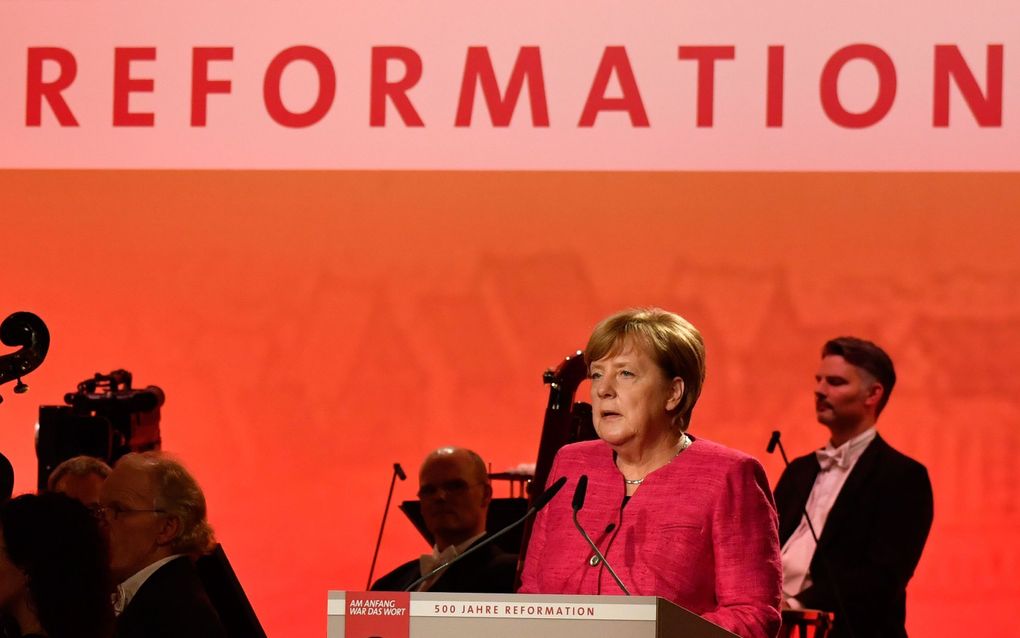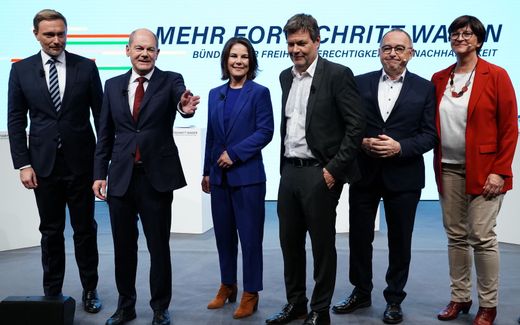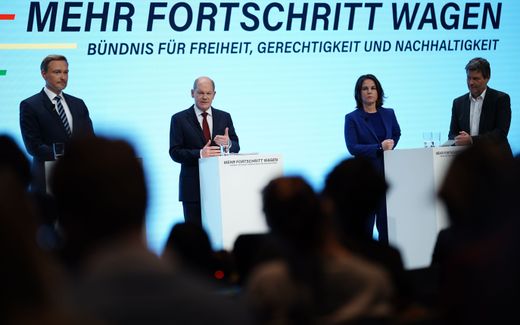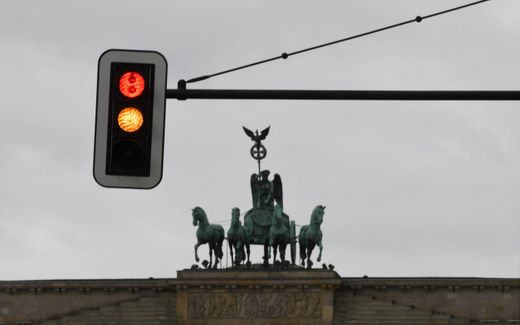"German Christian-Democrats must put family at the centre"
08-12-2021
Central Europe
CNE.news

German Chancellor Angela Merkel addresses guests during an official ceremony on the occasion of the 500th anniversary of the Reformation on October 31, 2017 in Wittenberg, eastern Germany. Photo AFP, John MacDougall
Central Europe
The Christian-Democrats in Germany, who lost the German parliamentary elections earlier this year, "must put the issue of the family back at the centre of its political action." So says Norbert Geis, a member of the German federal parliament for 26 years. To party is going in the opposition on Wednesday.
When it comes to the family, "we must no longer let go of the reins", the lawyer explains in an interview with Die Tagespost. "Above all, we need clear positions that show what is at stake in this policy field. In particular, we need to ensure that the Christian image of the family is not lost in our society: the family consisting of father, mother and children." According to him, the importance of the mother for the family must also be emphasised much more."
In concrete terms, this means, among other things, that "mothers' child-rearing achievements must also be adequately rewarded financially. This also applies to pension benefits for mothers."
Norbert Geis was a member of the German Bundestag from 1987 to 2013. In the Christian-Democratic CDU/CSU parliamentary group, the CSU politician from Bavaria was known for his clear edge and Catholic-conservative positions.
Christian character
Geis further believes that politics "needs more Catholics again who are well anchored in their faith and willing to make the public cause their task." The "basic Catholic conviction no longer has the status it had in the founding period of the Federal Republic and many years under the government responsibility of the Union parties", complains Geis. Today, according to the former MP, the Union of CDU/CSU needs a clear profile based on its Christian character. To achieve this, it must occupy the contents that fit its values, he says.

Geis sees more Catholic DNA in the Bavarian CSU than in the sister party. "In Bavaria, there is still a stronger influence of the Catholic Church. That is why the Catholic element has a stronger role here than in other federal states."
Geis also believes that the Union must develop its own profile in other policy areas. For example, in domestic and security policy, people expect stability and the preservation of our liberal social order. It includes a consistent fight against crime. In addition, there is a need for an asylum policy that does not open all doors without restraint. "We in Germany cannot take in all the refugees in the world."
Opposition
The CDU/CSU of former Chancellor Angela Merkel, who had already handed over the party leadership to Armin Laschet, suffered a painful defeat in the parliamentary elections on 26 September.
On 24 November, the centre-left SPD, climate party, the Greens and the liberal FDP presented a coalition agreement. It condemned the CDU/CSU to the opposition. In this role, the Union will not have it easy, writes Die Tagespost. "Every opposition lives first and foremost from the mistakes of those in power. But it lives better if, as the "government of tomorrow", it can offer plausible answers to pressing questions. After 16 years of Merkel, the CDU/CSU has yet to achieve this."
Protestants majority in Bundestag
More than half of the 736 members (53.9 per cent) of the new 20th German Bundestag say they belong to one of the two major churches, German IdeaPressedienst writes based on the "Official Handbook of the German Bundestag". One-third of the MPs (33.7 per cent) did not state their denomination. The data manual explicitly states that the heading "not specified" does not allow the conclusion that the MPs recorded here do not belong to any religious community or denomination.
The largest denomination group is currently Protestants with 27.9 per cent (+1.8 percentage points compared to 2017), followed by Catholics with 26.0 per cent (-1.1 percentage points). 10.2 per cent describe themselves as "non-denominational or non-religious" (+2.7 percentage points), one per cent are Muslims (+0.6), 0.3 per cent say they are atheists (+0.2). The share of "other denomination" is 1.1 per cent (+0.4).
Protestants are proportionally most strongly represented in the FDP (34.8 per cent), followed by the CDU/CSU (34.0 per cent) and the SPD (33 per cent). Catholics form a clear majority in CDU/CSU (57.4 per cent), followed by the FDP (22.8 per cent) and the SPD (15 per cent).
Related Articles





